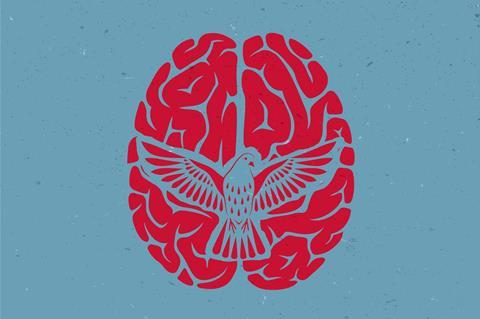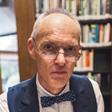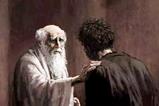Neuroscience might provide some unexpected answers to two complex theological questions, says David Instone-Brewer

When I was a student, a friend said he was going to follow God totally – he was determined not to do anything at all without asking God first. It didn’t take long for him to realise this wouldn’t work – until lunchtime, in fact. He asked God what he should eat and, after praying, he got too hungry to wait any longer for the instruction. He decided God wanted him to get on with his life.
How does the Holy Spirit work in us? Paul says we become a “new creation” and Jesus said we are “born again” (2 Corinthians 5:17; John 3:3). So something profound happens to us – but what? Paul also tells us to “live by the Spirit” and not by “the flesh” (Galatians 5:16-25). The problem is, we don’t feel as though there is a new individual person inside us, and we certainly don’t feel controlled by him.
Split brains
Experiments in brain function have given us a practical insight into our new reality as Spirit-filled believers. In 1981, psycho-biologist Roger Sperry received a Nobel prize for his earlier work in the 1960s on patients with ‘split brains’. These unfortunate people had dangerously severe epilepsy, which was treated by a radical operation to disconnect the communication between the left and right hemispheres of their brains. This often cured them – and they didn’t feel much different – but psychologists noticed some strange results.
Our left brain controls the right side of our body and right visual field, while our right brain operates the left. One of Sperry’s experiments involved giving the patients a spoon in their left hand and a fork in the right, without them seeing what the objects were. When he asked them to say what was in their hand, they said “a fork”. But when he asked them to draw the answer, they drew a spoon. Through this and other experiments, the researchers discovered our left brain specialises in speech and formulating language, while the right specialises in visual understanding and face recognition.
This kind of local specialisation helps us to think quickly and efficiently; although the two sides of our brain specialise, they share their conclusions with the other side. When the connection between the hemispheres is cut, each half has to think entirely by itself, and can come to different conclusions.
Internal disagreements
Sometimes we can feel in two minds about something – and perhaps we literally are. Sperry and others found signs that the separated hemispheres in these patients sometimes had different goals. One might be more prone to snacking than the other – resulting, for example, in someone reaching for a cookie with one hand while their other hand pushed it aside. Some patients described feeling as if one of their hands was controlled by an alien.
Before these experiments, we did not know that each half of our brain could think for itself, because normally the two halves quietly cooperate.
We don’t notice this happening because our conscious thought works much slower – it is like a football commentator who can’t describe every player’s movements. We only know the conclusion (eg ‘have another cookie’) – which we can then accept or reject. Every decision strengthens that brain pathway so each decision is influenced by previous conscious decisions – rather like we automatically take a familiar route home.
Now we can begin to see how the Holy Spirit can completely transform us without controlling us or changing our personality – except for the better. Like the two sides of our brain do, the Spirit can influence and educate our internal decision-making as it happens and without us noticing.
We now have three ‘persons’ weighing up what to do, each contributing from their own specialist capabilities. When it is a matter of doing good or bad, the Spirit is clearly the expert, but that does not mean we will necessarily follow his prompting. If we continually make selfish decisions, these will continue to strongly influence our internal debate. We may not realise anything is happening, but every time we walk in the direction the Spirit indicates, our mind is being physically transformed by his influence.
Sometimes we can feel in two minds about something – and perhaps we literally are
Three in one
These insights into our own personhood may also help us understand the Trinity. Of course, God is far more complex than any mere biological animal like ourselves. However, it is now much easier to grasp the idea that a single being can consist of three persons. This is clearly possible: we are living proof.
If we have accepted Jesus, we have another person, the Holy Spirit, living in us – so we are made up of three independent thinkers. This does not make us like God, but it does demonstrate that a single being can consist of more than one person – which has often been denied with regard to the Godhead. If this is possible in our puny brains then the Father can certainly remain a single being while sending his Son to live on our planet and his Spirit to live in us.
When we become conscious of our internal decision-making, we can choose to act in our normal selfish way, or follow the Spirit’s prompting. Each time we follow the Spirit, we strengthen that new decision pathway, and we gradually grow in sanctification, as Paul calls it.
The goal for us all is both difficult and simple: to learn to follow what the Spirit says.






































No comments yet